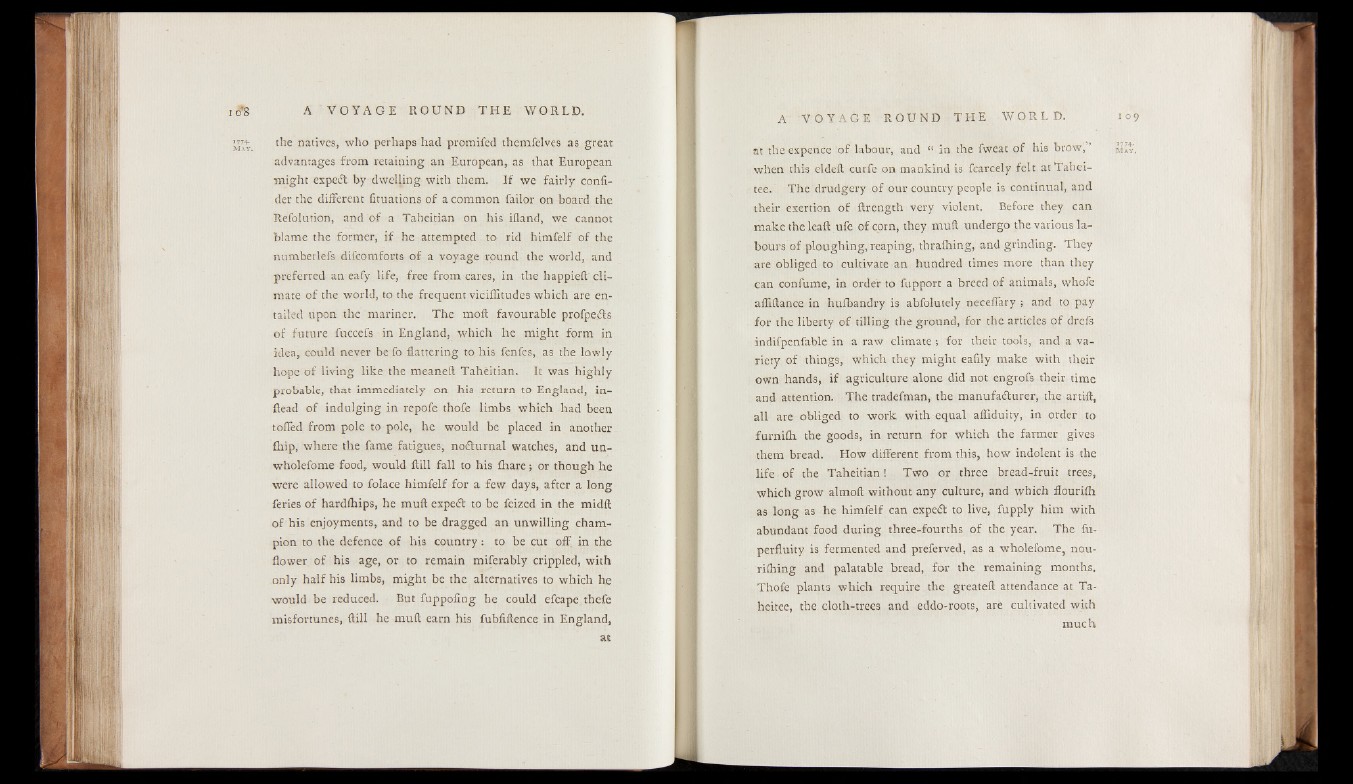
the natives, who perhaps had promifed themfelves as great
advantages from retaining an European, as that European
might expedt by dwelling with them. If we fairly confi-
der the different fituations of a common failor on board the
Refolution, and of a Taheitian on his ifland, we cannot
blame the former, if he attempted to rid himfelf of the
numberlefs difcomforts of a voyage round the world, and
preferred an eafy life, free from cares, in the happieft climate
of the world, to the frequent viciffitudes which are entailed
upon the mariner. The mod favourable profpedls
of future fuccefs in England, which he might form in
idea, could never be fo flattering to his fenfes, as the lowly
hope of living like the meaneft Taheitian. It was highly
probable, that immediately on his return to England, in-
flead of indulging in repofe thofe limbs which had been
toffed from pole to pole, he would be placed in another
{hip, where the fame fatigues, nodturnal watches, and un-
wholefome food, would ftill fall to his Ihare; or though he
were allowed to folace himfelf for a few days, after a long
feries of hardlhips, he mu® expedt to be feized in the midft
of his enjoyments, and to be dragged an unwilling champion
to the defence of his country; to be cut off in the
flower of his age, or to remain miferably crippled, with
only half his limbs, might be the alternatives to which he
would be reduced. But fuppofing he could efcape thefe
misfortunes, ftill he muft earn his fubfiftence in England,
at
at the expence of labour, and “ in the fweat of his brow, ’ may.
when this eldeft curfe on mankind is fcarcely felt atTahei-
tee. The drudgery of our country people is continual, and
their exertion of ftrength very violent. Before they can
make the leaft ufe of corn, they muft undergo the various labours
of ploughing, reaping, thrafhing, and grinding. They
are obliged to cultivate an hundred times more than they
can confume, in order to fupport a breed of animals, whofe
afliftance in hufbandry is abfolutely neceffary ; and to pay
for the liberty of tilling the ground, for the articles of drefs
indifpenfable in a raw climate ; for their tools, and a variety
of things, which they might eafily make with their
own hands, if agriculture alone did not engrofs their time
and attention. The tradefman, the manufadturer, the artift,
all are obliged to work with equal afliduity, in order to
furnifh the goods, in return for which the farmer gives
them bread. How different from this, how indolent is the
life of the Taheitian! Two or three bread-fruit trees,
which grow almoft without any culture, and which flourifh
as long as he himfelf can expedt to live, fupply him with
abundant food during three-fourths of the year. The fu-
perfluity is fermented and preferved, as a wholefome, nou-
rifhing and palatable bread, for the remaining months.
Thofe plants which require the greateft attendance at Ta-
heitee, the cloth-trees and eddo-roots, are cultivated with
much